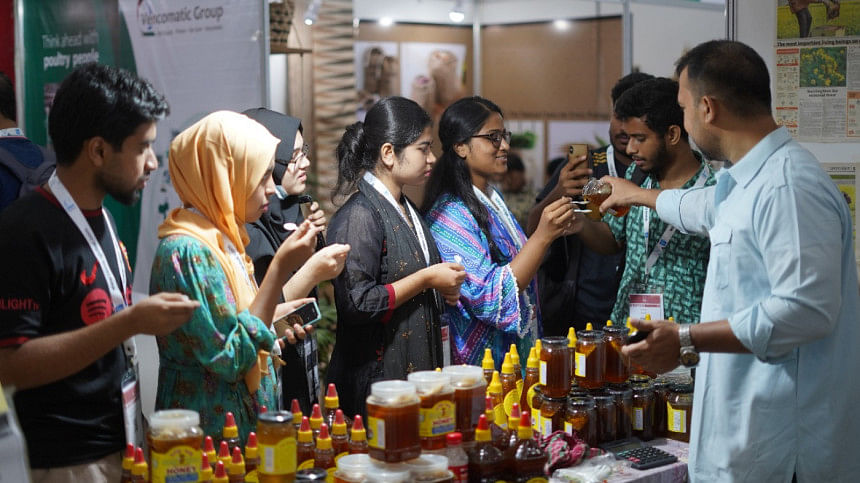Bridging skills and enterprise: How BYETS is unlocking youth employment through SME support

As Bangladesh seeks to diversify its economy and create sustainable employment opportunities for its growing youth population, one initiative is tackling two persistent challenges in tandem: the need for skilled labour and the limited capacity of small and medium enterprises (SMEs) to absorb it.
The Building Youth Employability Through Skills (BYETS) programme has taken a pragmatic approach to this challenge by aligning its training and skills development activities with the real-world needs of Bangladesh's SME sector. Rather than focusing solely on large industrial employers, BYETS is working to ensure that smaller businesses, which are more geographically dispersed and often more accessible to rural and peri-urban youth, are equipped to provide m eaningful employment.
Central to this strategy is the recognition that SMEs are often overlooked in national workforce planning, despite their potential to drive innovation, generate jobs, and contribute to decentralised economic development. Many operate outside the reach of conventional support structures and face common barriers, including limited awareness of compliance and regulatory frameworks, weak links to global supply chains, and difficulty accessing skilled manpower.
BYETS is addressing these issues from both ends. On one side, it is training young people with practical skills tailored to sectors like agro-processing—a field that spans everything from food and beverage manufacturing to agro-machinery, sustainable packaging and jute-based products. On the other, it is working with SMEs to strengthen their organisational capacity, improve their understanding of compliance requirements, and connect them with market opportunities.
A key part of this effort was a recent international expo co-organised with CEMS Global. Unlike traditional trade fairs that focus narrowly on machinery or end-products, this event offered a comprehensive view of the agro-processing value chain. By bringing together producers, processors, technology providers and packaging firms, both domestic and international, the expo provided SMEs with a unique opportunity to explore innovations, forge partnerships and identify export avenues.
The aim was not simply to showcase products, but to create an ecosystem in which skilled youth and growth-oriented SMEs can find one another. For a country where industrial hubs like Gazipur and Chattogram attract much of the investment, SMEs—dotted across the country—offer a chance to broaden the economic base and enable young people from a wider range of backgrounds to access stable livelihoods.
The seminars held during the expo reinforced this vision, tackling core issues such as regulatory barriers, compliance standards, and the challenge of entering non-traditional markets. These discussions were designed to give SMEs the tools they need to expand, and to help policymakers understand what support is required.
At its heart, BYETS' model is one of integration. It understands that equipping youth with skills is only half the solution; those skills must meet real demand. By embedding its training efforts within a broader strategy of enterprise development and trade facilitation, the programme is creating the conditions for more inclusive growth.
This joined-up thinking reflects a shift in how development programmes approach employment. Rather than viewing training and job creation as separate endeavours, BYETS is treating them as interdependent, recognising that sustainable employment comes from strengthening both the supply and the demand sides of the labour market.
If successful, this model could offer a template for other sectors, and for other countries grappling with similar challenges: how to create opportunities for young people not just in industrial hubs, but across the full landscape of the economy.
The BYETS project is funded by the Embassy of the Kingdom of the Netherlands and implemented by Swisscontact.

 For all latest news, follow The Daily Star's Google News channel.
For all latest news, follow The Daily Star's Google News channel. 



Comments